Rosberg finished strong but this was Hamilton's year - Coulthard
- Published
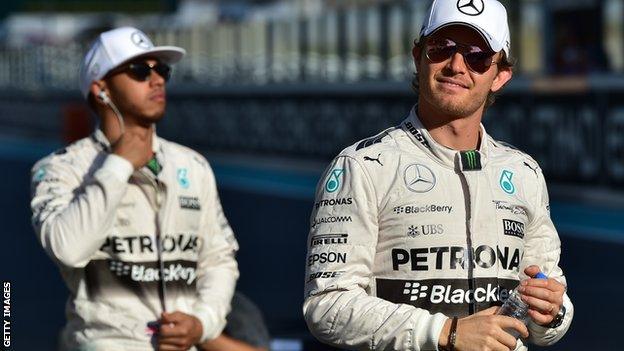
Lewis Hamilton might have won the title but Nico Rosberg ended 2015 as the man in front
The Formula 1 season ended on Sunday with a third consecutive victory for Mercedes driver Nico Rosberg, but it is important to remember how the year started.
There are now questions about just why Rosberg has hit this rich vein of form, but it has come at the end of a year that was owned outright by his team-mate Lewis Hamilton.
Unlike in 2014, when he retired from the first race of the season, Hamilton won in Australia in March and built up from there a momentum to which Rosberg had no answer.
The German had his moments but, generally speaking, Hamilton was in complete control of the season from Melbourne until he won the title in Austin in October with three races still to go.
It was the Lewis Hamilton show, and Rosberg was left looking punch drunk on the ropes.
Even when Hamilton made a mess of the first lap in Hungary and then made another important mistake later on in the race, Rosberg was unable to capitalise.
There was a point that afternoon when, had the positions remained as they were, Rosberg would have gone into the summer break leading the championship.
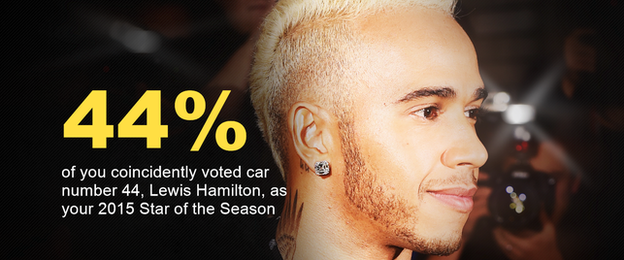
Instead, he got a cut tyre in a clash with Red Bull's Daniel Ricciardo and ended up finishing behind Hamilton, who was only sixth himself.
Hamilton had some hiccups - he was deprived of victory in Monaco by a team strategy error, for example - but generally everything seemed to go his way.
The British Grand Prix, one of the better races of the year, was a good example. Hamilton survived an off-circuit moment early on when trying to pass the fast-starting Williams cars, and then made the perfect call on a tyre stop in late-race rain.
For a man who seems to feed off public adulation, winning that race in front of 120,000 fans could not have been a better result.
This period - and the title battle, such as it was - ended in Austin, when Rosberg lost the lead to Hamilton by running wide and Hamilton was able to seal the championship.
The big momentum shift
Hamilton's title victory was followed by three consecutive wins for Rosberg, whose run of consecutive poles is now at six.
What we don't know now is whether Hamilton has switched off because of the emotion of achieving his ultimate goal of becoming a three-time champion, or whether Rosberg, having reached an all-time low in their personal battle, decided to stop over-analysing and just drive. Or whether it is a bit of both.
The bottom line, though, is that Hamilton was a hugely deserving champion, who out-performed his team-mate when it mattered, and Rosberg found his form only when the prizes had already been handed out.
What gets us excited about next year is the prospect of Rosberg being able to carry that momentum into 2016 and Hamilton staying on the back foot, and a close fight for the title as a result.
People need distractions
Hamilton tends to go off to the Colorado mountains for winter to rest, recuperate, train and prepare for the following season. But let's keep an eye on social media to see whether he pops up in other, more starry, places as well - as is his right and wont.
The lure of the other life he has - the one revolving around celebrity, fashion and music - is so addictive that it is very difficult for him to just walk the dog and cross-country ski and go to the gym.
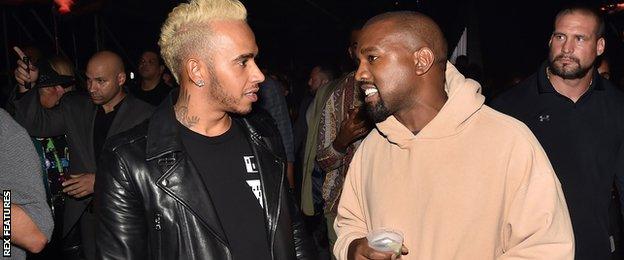
Lewis Hamilton's high-profile social life has drawn criticism from some, including his former boss at McLaren, Ron Dennis
Positive distractions are exactly that. It is not healthy to have only one focus all the time.
Humans are curious characters. Our desire to take on challenges and push boundaries is what created the world we live in today.
Racing drivers are no different. They need distractions. But you can only give 100% to one thing at a time.
It doesn't matter what you do away from the track as long as, when you're at it, you are fully focused and fit. If the two start to cross over, that's when it starts not to work.
Prospects for 2016
It was no surprise Mercedes were able to build on their success of 2014. It is often the way in F1 - when a team finds a big advantage, they hold on to it for some time. Mercedes' domination was preceded by Red Bull's from 2010-13, which came not long after Ferrari's from 2000-4.
History would suggest Mercedes will again lead the way in 2016 but there is a lot to be excited about.
Ferrari are determined to continue their momentum after a year when, from time to time, they did threaten Mercedes.
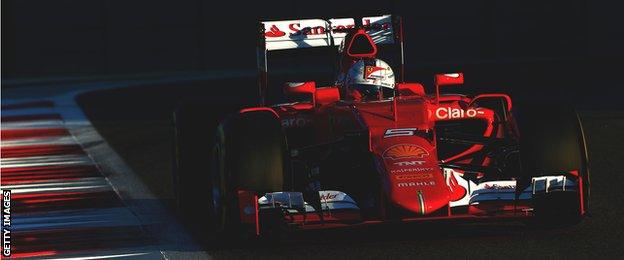
Ferrari were Mercedes' nearest challengers in 2015 - can the Italian team build on that next season?
On the driver front, there is a lot of exciting young talent, especially Max Verstappen and Carlos Sainz at Toro Rosso.
Even McLaren, after a terrible year, showed signs of improvement in Abu Dhabi.
The big question mark right now is over Lotus. The current owners have been running that team close to insolvency for some time as they wait for Renault's expected takeover.
That has been delayed because of various hitches, including a dispute over commercial rights money.
And there will be other issues as well - Renault have been around long enough to know that taking over a team is only the beginning. The real work starts in assessing what you own and what you need to do with it.
If the Renault takeover doesn't happen, you have to worry about Lotus' future, and it's troubling that such a great team from the past is on the cusp of not being on the grid.
That's just one of many ways in which F1 seems to be a ticking time bomb right now - there are also ongoing discussions about rule changes, engines and so on.
But like a great Hollywood movie, when it comes to the time for action, someone counts down and it keeps on going. And the off-track intrigue adds an extra element as well.
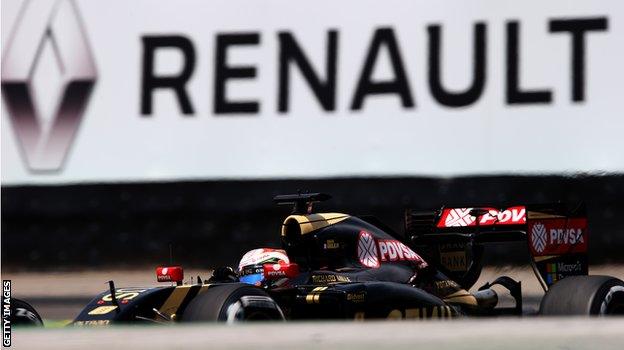
Lurking in the background: Renault have long been expected to take over Lotus but doubts persist
F1 needs a big TV audience
It was ironic that we spent the weekend in Abu Dhabi at a £1.2bn government-funded facility at the end of a year in which various aspects of F1 in Britain have seemed under threat.
Most of the F1 teams are British-based, and as a result so are many of the people who work in it. F1 is the figurehead of a £9bn British industry which is the biggest influence on motorsport around the world.
And yet in the last few months F1 boss Bernie Ecclestone has - for whatever reason - questioned the viability of the British Grand Prix, which is held on one of the sport's best and most historic circuits, and now it seems there are question marks about free-to-air television coverage in the UK as a result of the BBC's need to make savings.
My personal view is that if F1 allows itself to lose free-to-air television coverage in the UK, it will not only affect the popularity of the sport, and by extension the teams' ability to raise money to compete, but it will also reduce its exposure to the next generations of engineers and mechanics.
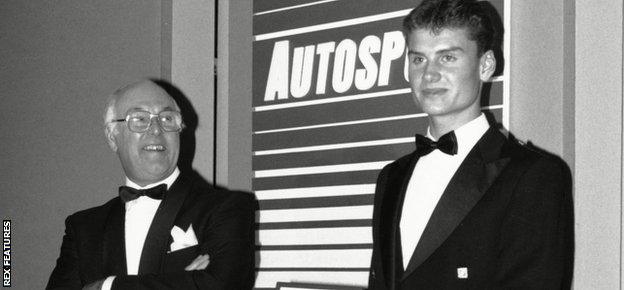
David Coulthard, seen here with BBC commentator Murray Walker in 1989, says the corporation's coverage of F1 had an influence on him as a youngster
F1 has inspired people to enter a workforce that numbers tens of thousands of people - the drivers are just the lucky ones at the end of the rainbow.
I am proud to work for the BBC. I don't think I would have made it out of my home village of Twynholm if I had not been able to watch F1 on the BBC. Without it, there was no outlet for me to see Canada and Monaco and places like that.
Of course, the world has changed since then, but free-to-air television still reaches many more people than subscription and without it we would be moving into previously uncharted waters as far as F1 in the UK is concerned.
David Coulthard was talking to BBC Sport's Andrew Benson.
- Published29 November 2015
- Published25 December 2015
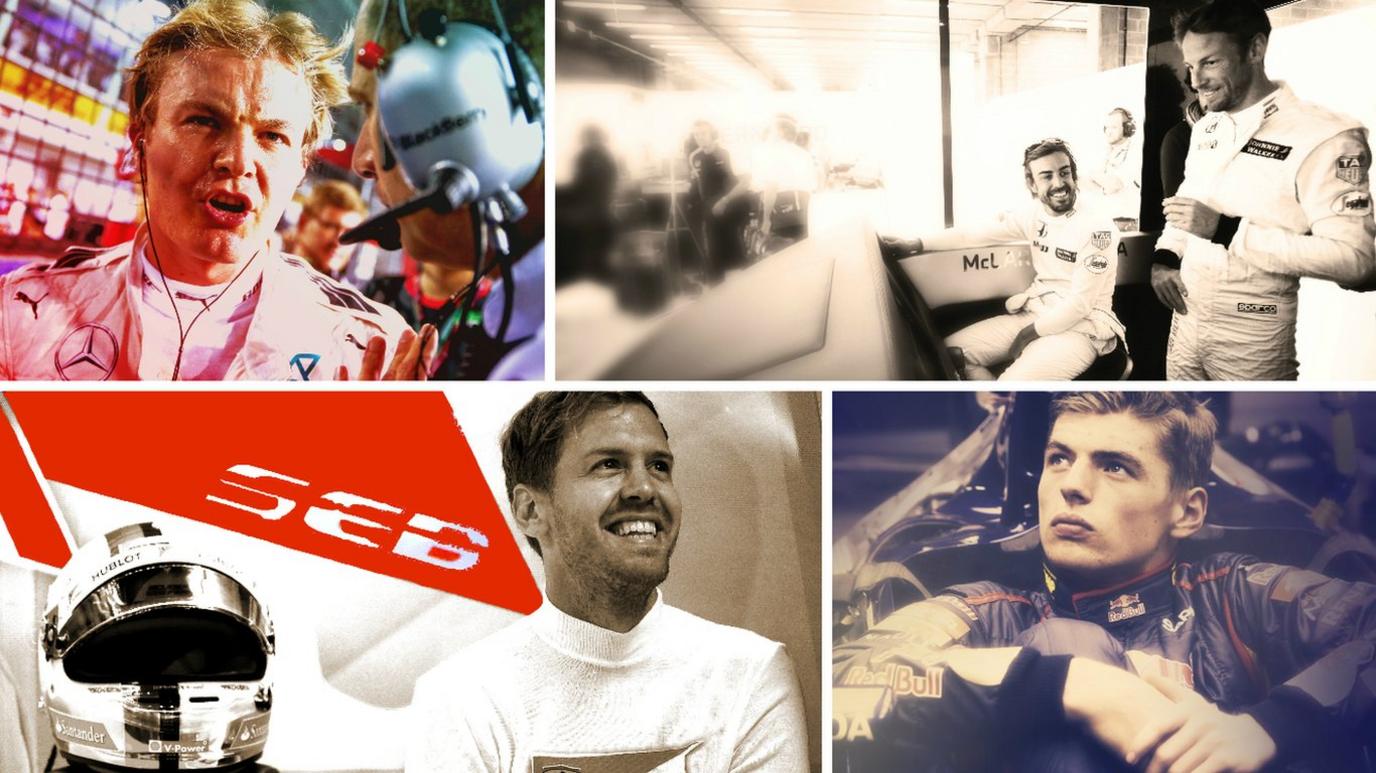
- Published18 December 2015

- Published2 November 2018

- Published26 February 2019
